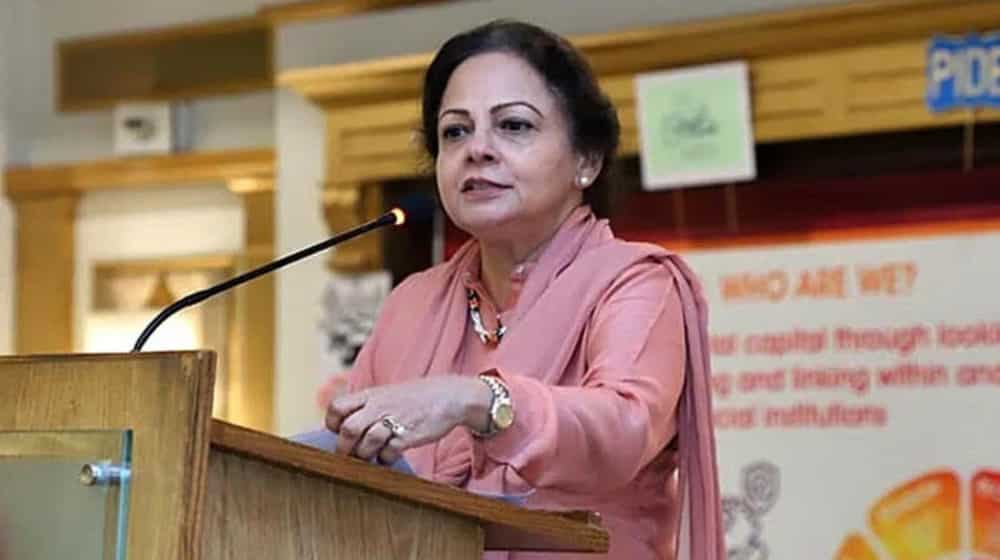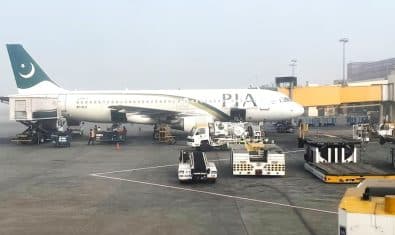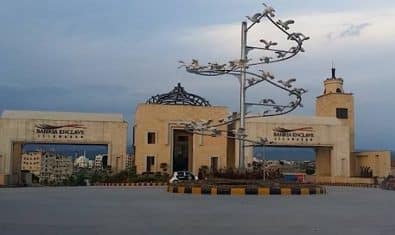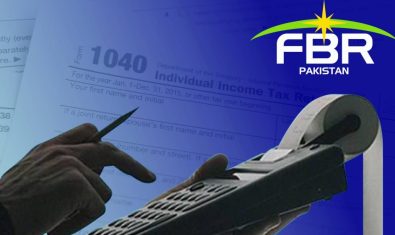Minister of State for Finance Dr Aisha Ghaus Pasha has sought help of the tax lawyers, tax practitioners and chartered accountants to assist the Federal Board of Revenue (FBR) in increasing the Tax-to-GDP ratio, which is alarming lowest in the region.
Addressing the Summer Camp 2022 arranged by Pakistan Tax Bar Association, Dr Ayesha Ghous Pasha stated that the our country is a nuclear power but is unable to provide basic services to citizens due to distortions in taxes and other economic issues.
She said that the FBR cannot do documentation of the economy in isolation and needs help of the tax practitioners and chartered accountants to help the tax machinery in expanding the tax base.
The minister said the narrow tax base is a serious area of concern. The manufacturing and services sectors contribution in the federal taxes is not enough. The main area of concern is that the governments are unable to do documentation of the economy due to one reason and another.
“Too much dependence on indirect taxes is also a serious issue for the country. The automatic collection of taxes from raising import tariffs and increasing indirect taxes raise the share of indirect taxes in the overall tax collection. But, the indirect taxes are inflationary and its burden is immediately passed on to the general public”, she said.
Therefore, the resource mobilization for 2022-23 would be done through direct taxes and not indirect taxes. To move towards self-reliance, incidence of taxes has been increased on those earning more profits and income including high income earners and higher salaried class, the minister stated.
Addressing the gathering, Federal Board of Revenue Chairman (FBR) Asim Ahmad said that the FBR has started mapping of the entire supply chain starting from manufacturing stage to end consumers
In this regard, the FBR has finalized the work plan for implementation. The FBR is committed to document digitization of payments which has been successfully done by Turkey.
The FBR was working on increasing narrowed tax base with help of technology. He offered tax bars to assist the FBR for achieving the desired objectives. He said that both the taxpayers and tax advisors were respectable to the FBR and he believed on resolving issues so the FBR’s senior management would sit together to resolve issues. The cause of problem will be resolved at all stages, he added.
He said that the FBR has conducted a study on tax gap analysis which revealed that the existing tax gap is around Rs. 3,000 billion.
Chairman FBR said that the FBR conducted a study after hiring consultant and so far found that out of total size of the economy to the tune of Rs. 67 trillion, the federal government levied Sales Tax on Rs. 32 trillion and then calculated income tax, customs duty and federal excise duty potential.
“We have found that the total tax potential under jurisdiction of the federal government stands at Rs. 9,000 billion out of which the FBR collected Rs. 6,000 billion so the tax gap was assessed at Rs. 3,000 billion annually.
The chairman said that there was tax gap of Rs. 3,000 billion out of which Rs. 1,800 billion was policy gap as it was gap occurred mainly because of tax exemptions/incentives provided by the FBR to different sectors.
He said that if the FBR abolished all kinds of tax exemptions and ensured full compliance the tax-to-GDP ratio could touch 14 percent with maximum collection of Rs. 9,000 billion on annual basis.
He said that the tax evasion of GST stood in the range of Rs. 250-300 billion. The FBR slapped fixed rate through electricity bills but it is not permanent solution. The FBR will have to move on the pattern of Turkey for placing digitization of payment at all stages from manufacturers to retailers.





















